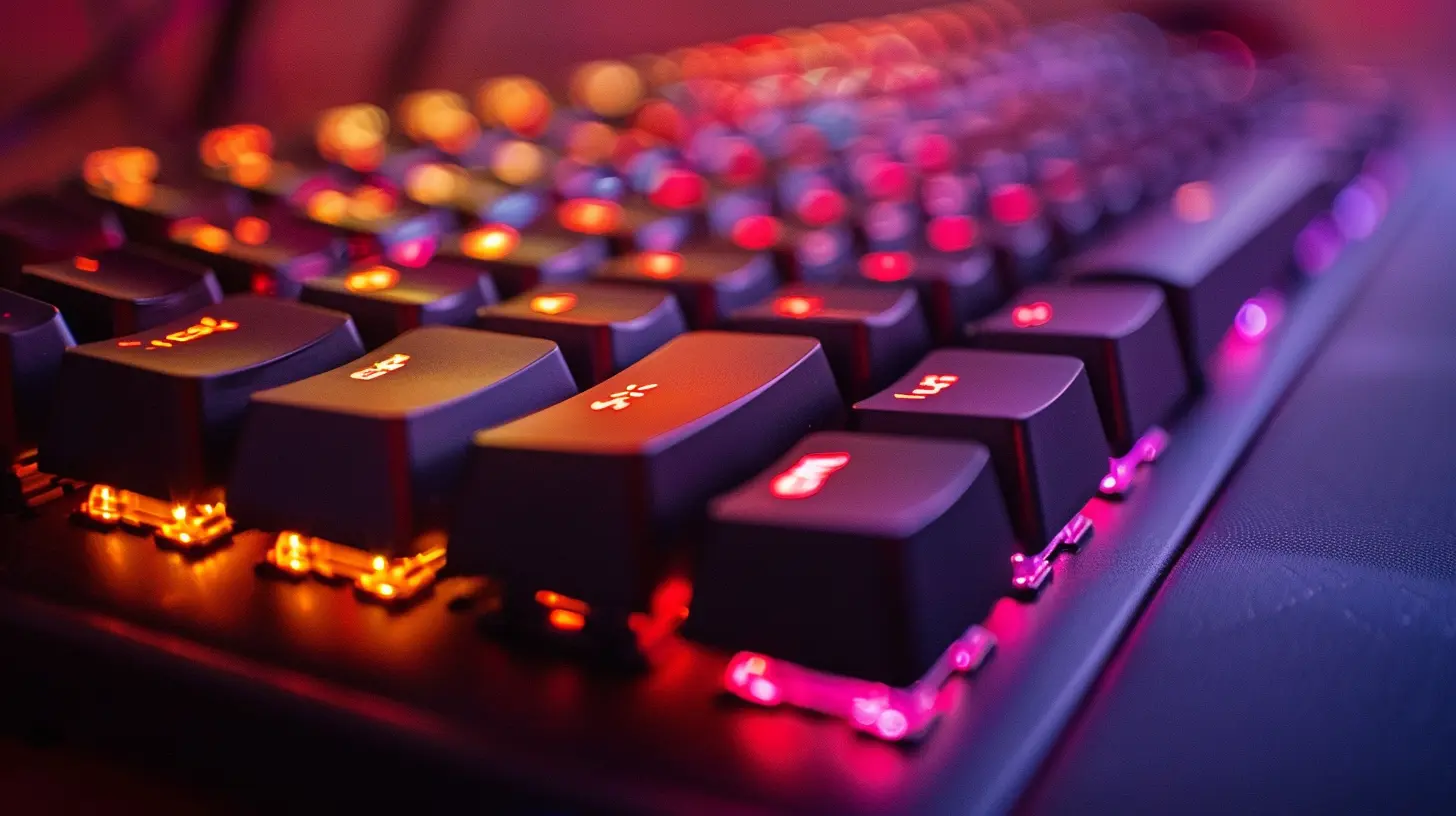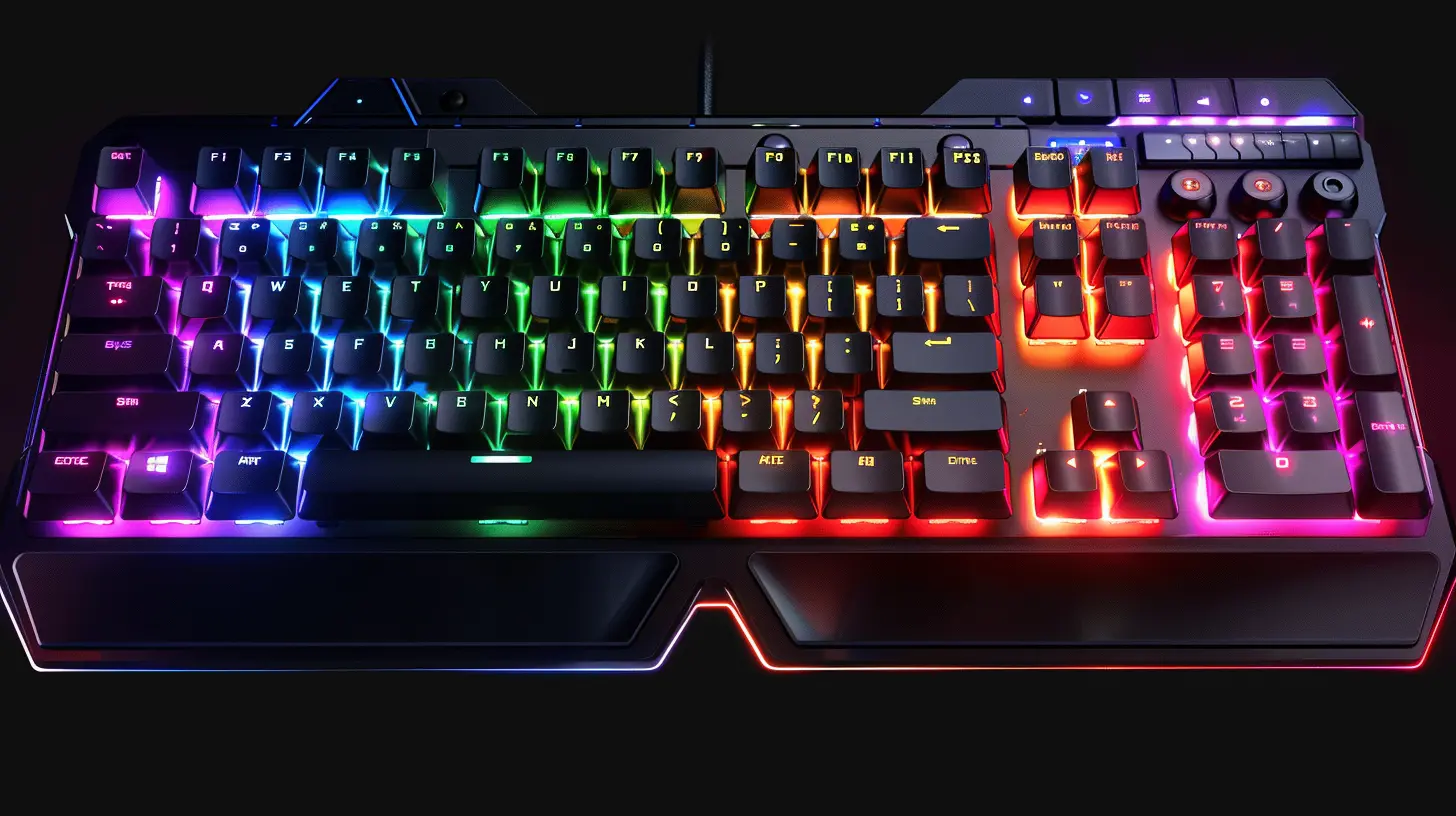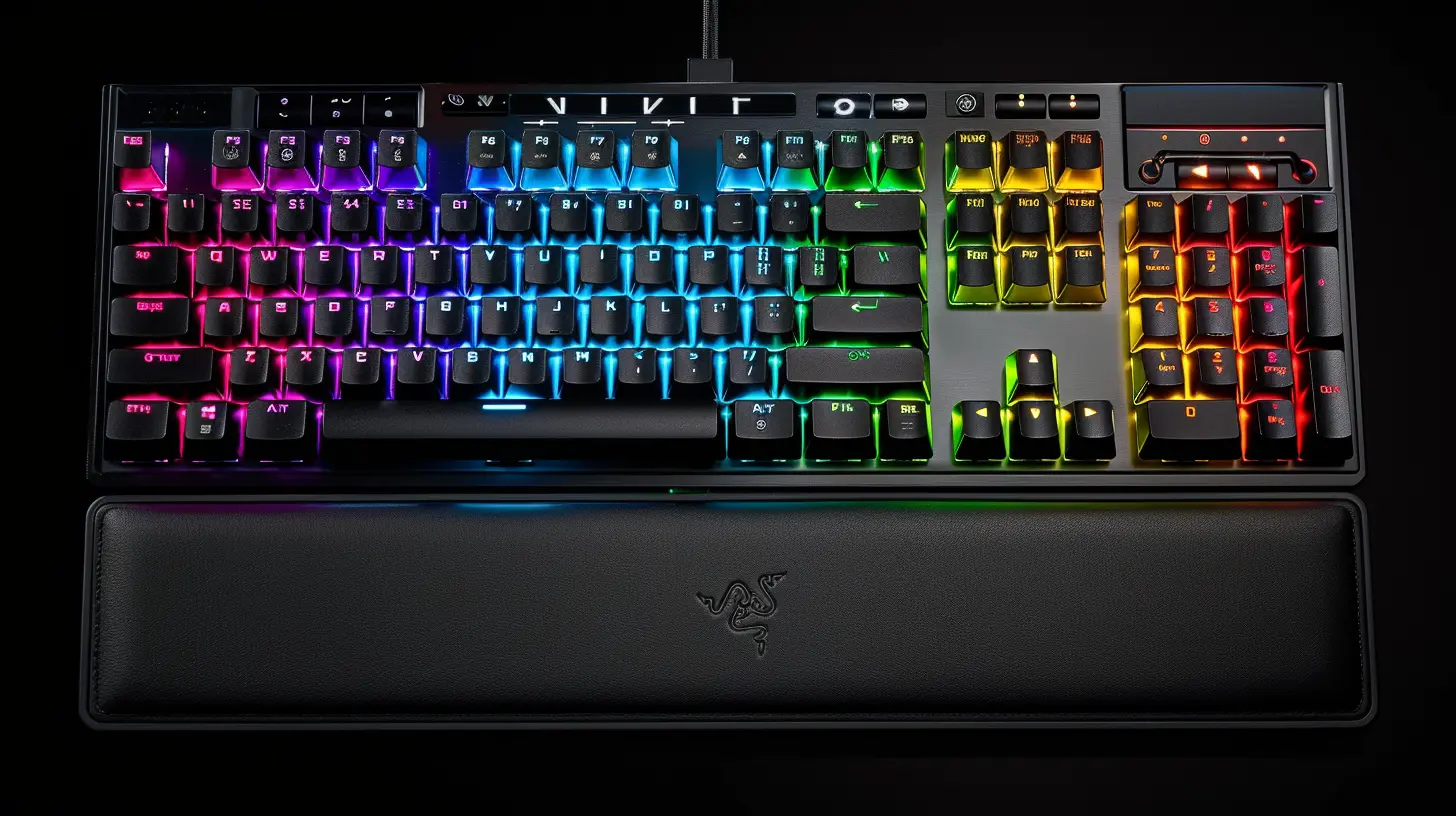Gaming Keyboards under the Spotlight: Mechanical vs. Membrane
20 July 2025
If you’re a gamer, you already know that having the right gear can make or break your gaming experience. From your mouse to your monitor, every piece of equipment plays a role. But one particular item gets more attention than most: the keyboard.
Now, you might be thinking, "A keyboard is a keyboard, right?" Not exactly. When it comes to gaming, the difference between a mechanical and membrane keyboard can be as vast as night and day. Both types have their pros and cons, and the one you choose can significantly impact your gameplay.
In this article, we’re tossing mechanical and membrane keyboards into the ring, head-to-head, to help you decide which one is the best fit for your gaming setup.

Mechanical Keyboards: The Classic Workhorse
Let’s start with the heavy hitter of the two — the mechanical keyboard. If you’ve ever heard someone hammering away at their keyboard like they’re auditioning for a drum solo, chances are they were using a mechanical one.What Are Mechanical Keyboards?
Mechanical keyboards are built with individual mechanical switches under each key. These switches are made up of several moving parts: a hard plastic “stem,” a spring underneath, and a metallic contact that registers a keystroke when pressed down.Each key on a mechanical keyboard works independently, giving you a tactile and auditory response when typing or gaming. It’s like pushing down a button on a high-quality piece of machinery, and it’s incredibly satisfying!
Benefits of Mechanical Keyboards
1. Durability
Mechanical keyboards are built to last. They can withstand millions of keystrokes — often 50 million or more per key. For gamers who are constantly hammering away at their keys, this kind of durability is a godsend.2. Tactile Feedback
One of the most significant advantages of a mechanical keyboard is the tactile feedback. You can feel and hear every keystroke, which makes it easier to know when a key has been successfully pressed. This is especially useful in gaming, where precision is everything. Missed keystrokes? Not a problem with mechanical keyboards.3. Customization
Mechanical keyboards offer a lot of customization options. You can swap out the keycaps, change the switches, and even program macros for specific games. Whether you want clicky, tactile switches or quieter, softer ones, mechanical keyboards have your back.4. N-Key Rollover and Anti-Ghosting
Ever tried to press multiple keys simultaneously on a regular keyboard, only to have some keys not register? Mechanical keyboards usually come with N-key rollover and anti-ghosting features, meaning you can press several keys at once without missing a beat. This is critical for games that require complex combinations of inputs.Downsides of Mechanical Keyboards
1. Price
Let’s be real — mechanical keyboards aren’t cheap. They’re an investment, and while they last a long time, the upfront cost can be steep. Some high-end models can even go for hundreds of dollars. If you’re on a budget, this might be a dealbreaker.2. Noise
Remember that “click-clack” sound I mentioned earlier? While it’s satisfying for some, it can drive others up the wall. If you share your gaming space with roommates or family, the noise of a mechanical keyboard might not be a welcomed addition to the household.3. Weight and Bulk
Mechanical keyboards tend to be heavier and bulkier than membrane keyboards. If you’re someone who likes a sleek, minimalistic setup or frequently moves your keyboard around, this could be an inconvenience.
Membrane Keyboards: The Sleek Contender
Moving on to the challenger in this battle: the membrane keyboard. These are the most common type of keyboards out there, and they work differently from mechanical ones.What Are Membrane Keyboards?
Unlike mechanical keyboards, membrane keyboards use a pressure pad system. Beneath each key lies a membrane layer that, when pressed, makes contact with a circuit and registers the keystroke. There are no individual switches for each key, and the entire keyboard relies on a unified membrane sheet.Benefits of Membrane Keyboards
1. Affordability
Membrane keyboards are much cheaper than their mechanical counterparts. If you’re a casual gamer or someone who’s just starting out and don’t want to break the bank, a membrane keyboard might be the way to go.2. Quiet Operation
Love gaming late at night but don’t want to wake up everyone in the house? Membrane keyboards are silent compared to mechanical keyboards. They lack the distinct “click” sound and can be a lot easier on the ears.3. Lightweight and Portable
Due to the absence of individual switches, membrane keyboards are typically lighter and more compact. If you like taking your keyboard on the go, whether for LAN parties or just to move around the house, a membrane keyboard is much easier to carry.Downsides of Membrane Keyboards
1. Less Durability
Membrane keyboards just don’t have the same lifespan as mechanical ones. Since the entire keyboard relies on a single membrane sheet, wear and tear is more likely to affect the entire unit rather than just individual keys. Over time, the keys can become mushy, and the responsiveness can degrade.2. Lack of Tactile Feedback
While mechanical keyboards give you that satisfying click and bump when you press a key, membrane keyboards often feel soft and squishy. This can be a downside if you’re looking for precise feedback during high-stakes gaming sessions.3. Limited Customization
Mechanical keyboards are a tinkerer's dream, but membrane keyboards? Not so much. You can’t easily swap out keys or switches, and the customization options are far more limited. You get what you get with a membrane keyboard, and that’s about it.
Mechanical vs. Membrane: Which One Should You Choose?
Okay, so now that we’ve broken down the pros and cons of both mechanical and membrane keyboards, you might be wondering: "Which one should I go for?"It depends on what you're looking for in your gaming experience.
If You Value Precision and Durability
If you’re all about precision and durability — meaning you game hard and need a keyboard that can keep up — the mechanical option is the clear winner. The tactile feedback, the longevity, and the ability to press multiple keys simultaneously make mechanical keyboards a top choice for professional gamers and enthusiasts alike.If You’re on a Budget or Prefer a Quieter Setup
On the other hand, if you're on a tighter budget or share a living space where noise could be an issue, a membrane keyboard is a decent alternative. While it won’t give you the same level of precision or durability, it gets the job done without breaking the bank or causing a ruckus.Do You Need Customization?
If you’re someone who loves to tweak and adjust your setup, mechanical keyboards offer a mountain of customization options. From changing keycaps to selecting different types of switches, mechanical keyboards let you personalize your gaming experience down to the smallest detail. Membrane keyboards, however, don’t offer much in the way of customization.
The Verdict: Mechanical or Membrane?
Ultimately, the choice comes down to your priorities. If you’re looking for something that will last you for years, provides a satisfying typing experience, and enhances your gaming precision, then a mechanical keyboard is worth the investment.However, if you're just getting into gaming or you're not ready to drop a significant chunk of cash on a keyboard, a membrane keyboard will serve you well for most gaming purposes. It’s quieter, cheaper, and lighter — making it a solid choice for casual gamers or those who want a more budget-friendly option.
In the end, both types of keyboards come with their own sets of strengths and weaknesses. The right choice will depend on what you value most in your gaming sessions. Whether you go with the clicky charm of a mechanical keyboard or the soft silence of a membrane keyboard, one thing’s for sure: your gaming setup is only going to get better from here.
all images in this post were generated using AI tools
Category:
Gadget ReviewsAuthor:

Marcus Gray
Discussion
rate this article
1 comments
Corin McNaughton
Mechanical keyboards offer tactile feedback, while membrane models prioritize affordability and quietness.
August 9, 2025 at 4:20 AM

Marcus Gray
Great point! Mechanical keyboards excel in tactile feedback, enhancing the gaming experience, while membrane keyboards are budget-friendly and quieter, catering to different user preferences.


